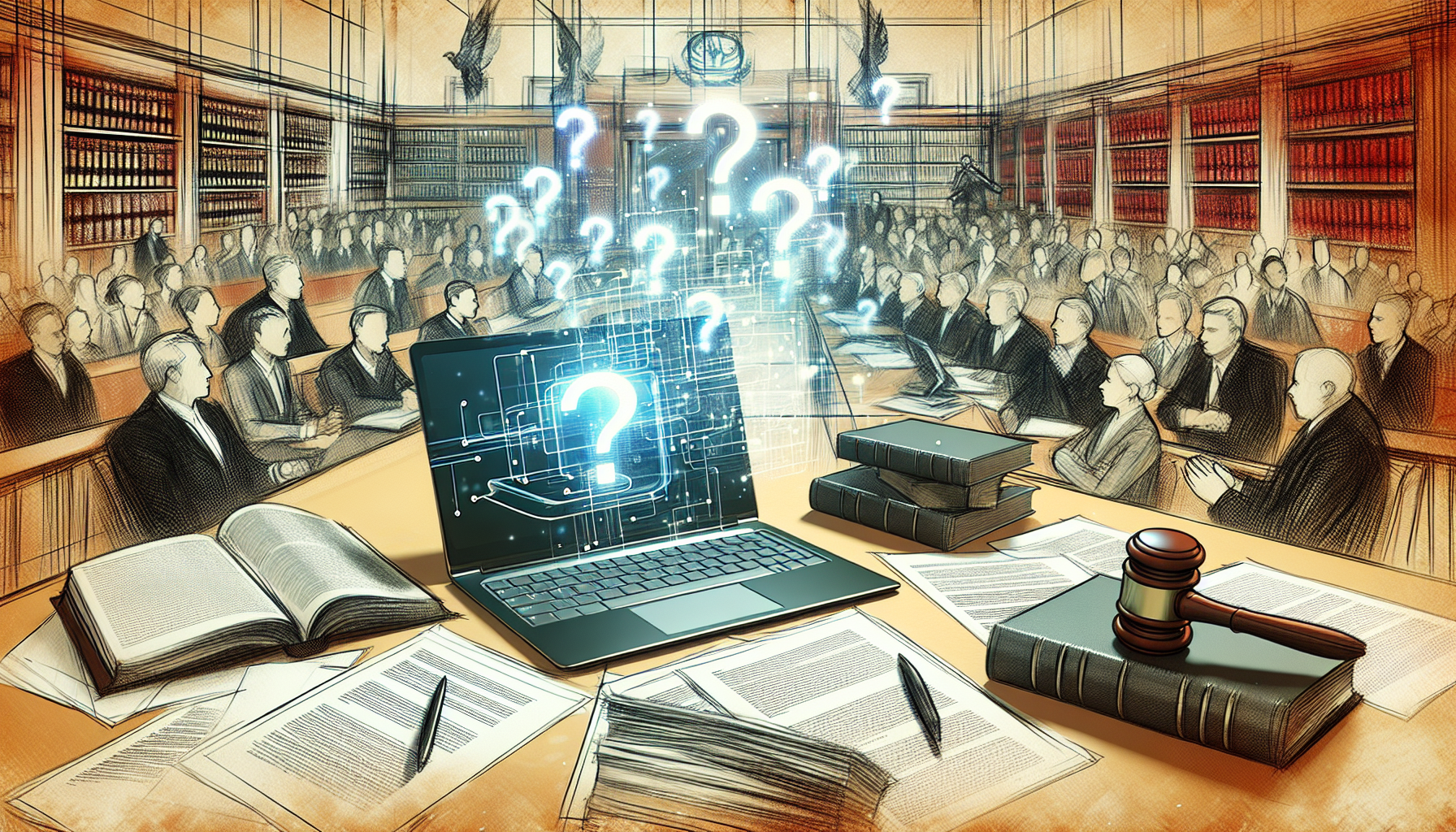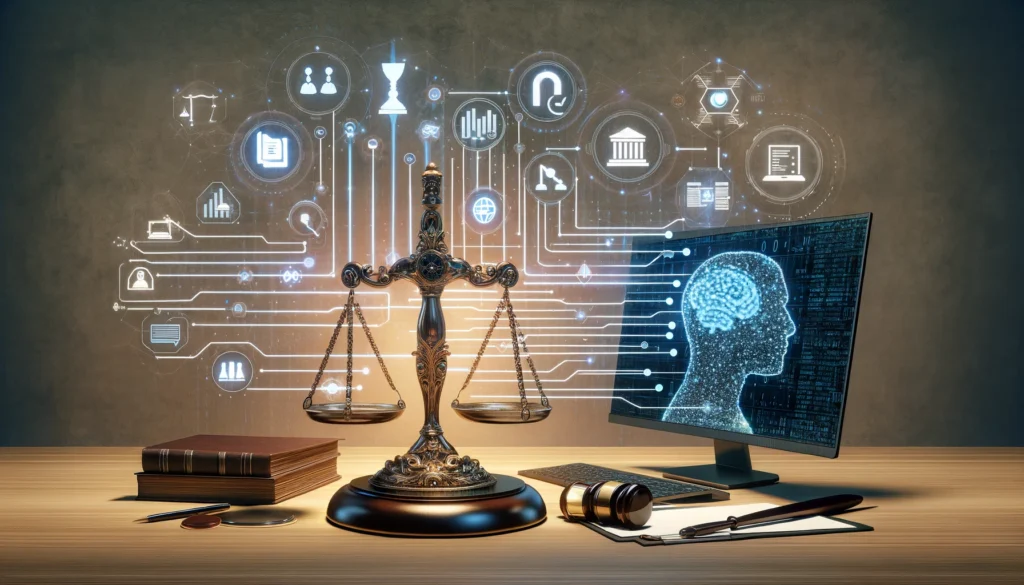
Setting the Scene: The Importance of Due Diligence in Corporate Transactions
Due diligence is a cornerstone of corporate transactions, where thorough and comprehensive analysis becomes a prerequisite to making informed decisions. It entails the meticulous examination of financial records, legal documents, operational data, and more to gauge the viability and potential risks associated with an investment. This multifaceted process aims to uncover any red flags that could jeopardize the success of the transaction.
Paralegals, who play a crucial foundational role in the due diligence process, often face a myriad of challenges. These range from extensive data collation and verification to ensuring accuracy and consistency across documents. This raises the need for efficient tools to aid in handling large volumes of information.
Stepping into this challenge can often be like diving into a deep pool without a lifeline. Enter ChatGPT, a solution that promises to change the narrative.
Unleashing the Power of ChatGPT: What it Brings to the Table
ChatGPT, a linguistic marvel brought forth by OpenAI, is a large language model (LLM) designed to understand and generate human-like text based on the input it receives. Its capabilities extend far beyond simple text generation, making it a powerful ally in handling complex data-driven tasks.
The advent of ChatGPT has revolutionized numerous industries, offering unprecedented assistance in automating and enhancing tasks that were traditionally time-consuming. For the realm of due diligence, this means automating data extraction, verifying information, and generating detailed reports efficiently. ChatGPT can simultaneously sift through large volumes of documents, highlight inconsistencies, and propose standard language for legal documents, driving productivity and precision to new heights.
Understanding how to leverage ChatGPT effectively requires a touch of finesse, particularly when crafting the prompts to interact with the model. This underpins the profound impact it can have in streamlining due diligence tasks seamlessly.
Crafting the Perfect Prompts: The Art of Conversing with ChatGPT
Communicating effectively with ChatGPT hinges on the art of crafting well-structured prompts. These prompts serve as the conduit through which concise and relevant responses can be elicited from the model.
Effective prompts are clear, specific, and contextually rich. This involves outlining what information is sought, setting the context, and framing questions that guide the model towards the desired output. Key elements include:
- Clarity: Ensuring the language is unambiguous and straightforward.
- Specificity: Providing detailed criteria and background to refine responses.
- Focus: Targeting particular areas or aspects to narrow down the information scope.
Mastering this art transforms ChatGPT from a simple tool into an indispensable paralegal assistant, capable of elevating the entire due diligence process.
Real-Life Prompts: Transformative Techniques for Due Diligence
The true potential of ChatGPT unfolds when we delve into real-life examples of prompts crafted for due diligence tasks:
Gathering Comprehensive Corporate Information
To extract corporate details:
“Provide an overview of ABC Inc., focusing on its financial performance over the last five years, key executives, and major business units.”
Verifying Details and Confirming Data Accuracy
When cross-checking data consistency:
“Review the attached revenue statements of XYZ Ltd. from 2021 and confirm if the numbers align with their audited financial reports.”
Enhancing Legal Language for Precision and Clarity
To refine language in a contract:
“Improve the clarity of the following clause in the agreement to minimize ambiguity: ‘[Insert clause].’
By employing such prompts, ChatGPT acts as an efficient assistant, facilitating rapid information aggregation and enhancing the accuracy of the due diligence process.
Layering these basic prompts with more detailed follow-ups can delve deeper, uncovering intricate layers of information.
Advanced Prompting Strategies: Delving Deeper into Due Diligence
To navigate the complexities of corporate transactions, advanced prompting strategies can be employed:
Creating Layered Prompts for Complex Information Requests
Layered prompts build on basic queries, adding specificity to uncover nuanced details. For instance:
“Identify any pending litigations involving DEF Corp. and summarize their potential impact on the company’s current financial standing.”
Utilizing Follow-Up Questions to Refine and Elaborate Responses
Following an initial prompt, refinement through follow-up questions yields thorough insights:
“Based on the pending litigations identified, estimate the potential financial exposure and any possible repercussions on shareholder value.”
Leveraging ChatGPT to Draft Initial Reports and Summaries
Initial draft reports can be generated swiftly:
“Create a due diligence summary report for GHI Inc., covering financial health, legal issues, and market position based on the provided documents.”
Such strategies optimize the information extraction process, ensuring that nothing slips through the cracks. Integrating these techniques into workflows can significantly enhance efficiency and accuracy.
Boosting Efficiency: Integrating ChatGPT into Your Workflow
To fully harness the power of ChatGPT, it’s beneficial to integrate it seamlessly into everyday workflows. Best practices include:
- Routine Incorporation: Regular use in due diligence tasks to familiarize team members.
- Tool Integration: Leveraging APIs and software integrations to streamline the use of ChatGPT with existing tools like document management systems.
This ensures a smooth, cohesive adoption, driving efficiency across the board.
Staying Ethical and Accurate: Ensuring Reliability in AI-Assisted Work
While ChatGPT can significantly enhance due diligence, ensuring the reliability and ethics of AI-generated content is paramount:
- Cross-Verification: Always cross-verify AI-generated outputs with trusted sources and human expertise to maintain accuracy.
- Ethical Standards: Abide by industry ethical standards, ensuring transparent and unbiased use of AI tools.
Maintaining these checks and balances guarantees the integrity and reliability of due diligence reports.
The Road Ahead: Future-Proofing Your Practice with AI
As AI continues to evolve, staying ahead of trends and innovations in legal technology becomes crucial. Anticipating and preparing for ongoing advancements will keep your practice at the cutting edge, ensuring continued efficiency and accuracy in due diligence tasks.
Embracing this technological evolution can turn AI tools like ChatGPT into invaluable assets, making your due diligence efforts more robust, efficient, and insightful.


